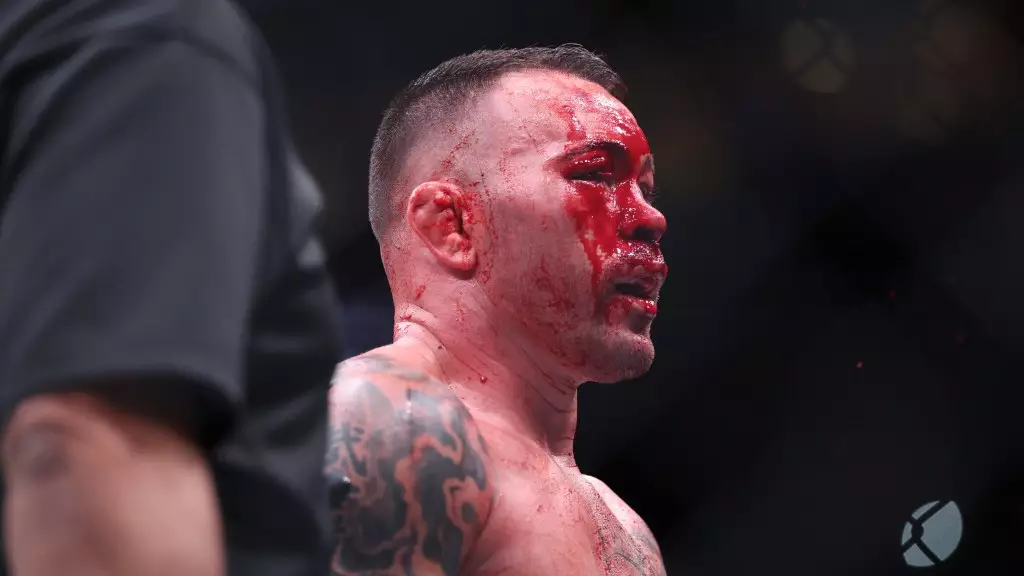In the world of mixed martial arts (MMA), defeat is often an inevitable part of a fighter’s career trajectory. Colby Covington’s recent bout at UFC on ESPN 63 showcased not only the physical trials of combat but the intricate emotional dynamics involved in the sport. Covington faced Joaquin Buckley and was met with a heartbreaking doctor stoppage due to a persistent laceration on his eyelid, which bled uncontrollably. Reflecting on his experience, Covington revealed his complex feelings regarding the situation, especially concerning his corner man’s controversial decision to potentially end the fight.
The Role of the Corner in a Fighter’s Journey
The relationship between a fighter and their corner is pivotal, as these individuals often play a crucial role in ensuring the well-being of the athlete during high-stakes moments. In this instance, Chael Sonnen, Covington’s corner man, disclosed that he was deliberating over the possibility of stopping the fight. This revelation brings to light the sometimes uncomfortable responsibility that trainers and corner personnel must navigate; they must balance loyalty to their fighter with a duty to prioritize their safety. Covington’s acknowledgment of Sonnen’s intentions underlines a deeper bond of trust and concern rather than resentment toward his decision.
The fighter’s thoughts reveal a nuanced understanding of the brutality of the sport and the inherent risks involved. Covington recognized that Sonnen’s consideration to throw in the towel stemmed from a place of care, asserting, “If he was throwing it in, it’s because he knows I couldn’t see.” This perspective not only illustrates Covington’s respect for his corner’s instincts but also serves to humanize the often perceived adversarial relationship between an athlete and their coach during losses.
A Fighter’s Resolve Amidst Adversity
Even in the bleak scenario of his defeat, Covington remains defiant and optimistic. He maintained that he was on the verge of turning the fight around as he fought through injury and visual impairment. His statement, “I thought I was coming on stronger,” reveals a fighter’s unwavering hope and tenacity, an essential mindset in a sport defined by uncertainty. Covington’s ability to hold onto the belief that he could regain control despite the growing odds against him speaks to the psychological resilience that champions are made of.
Moreover, Covington’s perspective offers insight into the mentality of athletes who often grapple with the aftermath of a loss. He emphasizes the importance of commitment to the company and the sport, stating, “I did that for the company,” suggesting a sense of duty that extends beyond personal contention. This mindset not only elevates the sport’s competitive spirit but also highlights the sacrifices athletes often make, sometimes to the detriment of their well-being.
Colby Covington’s experience at UFC on ESPN 63 provides a compelling narrative about the emotional and physical toll that MMA fighters endure. It captures the delicate balance between a fighter’s perseverance and the critical responsibility of their support systems to ensure their safety. Ultimately, the reflections of Covington reveal the intricate layers within the sport—facing adversity, valuing one’s corner, and understanding the harsh realities of competition all contribute to the rich tapestry of a fighter’s journey.

